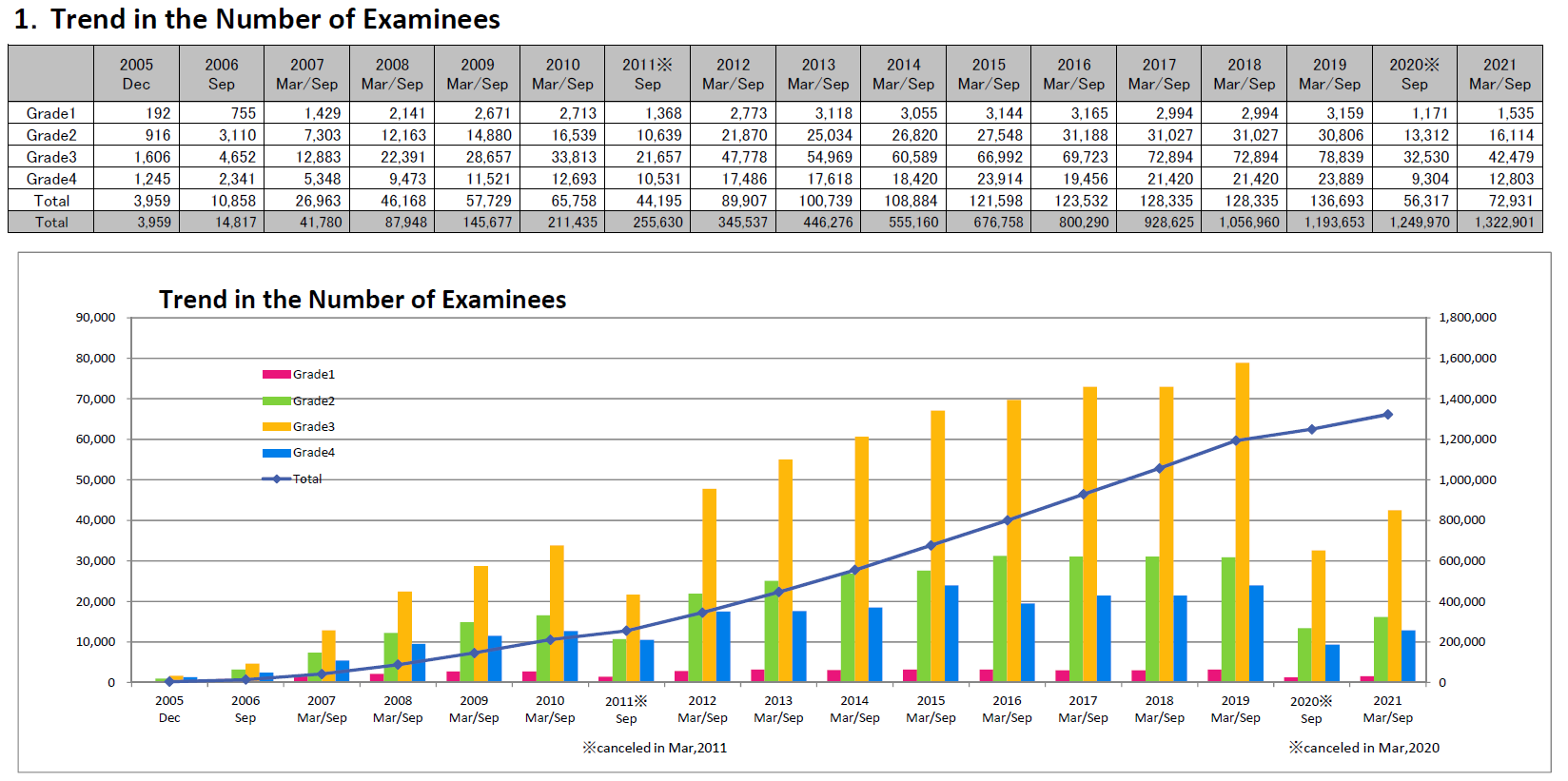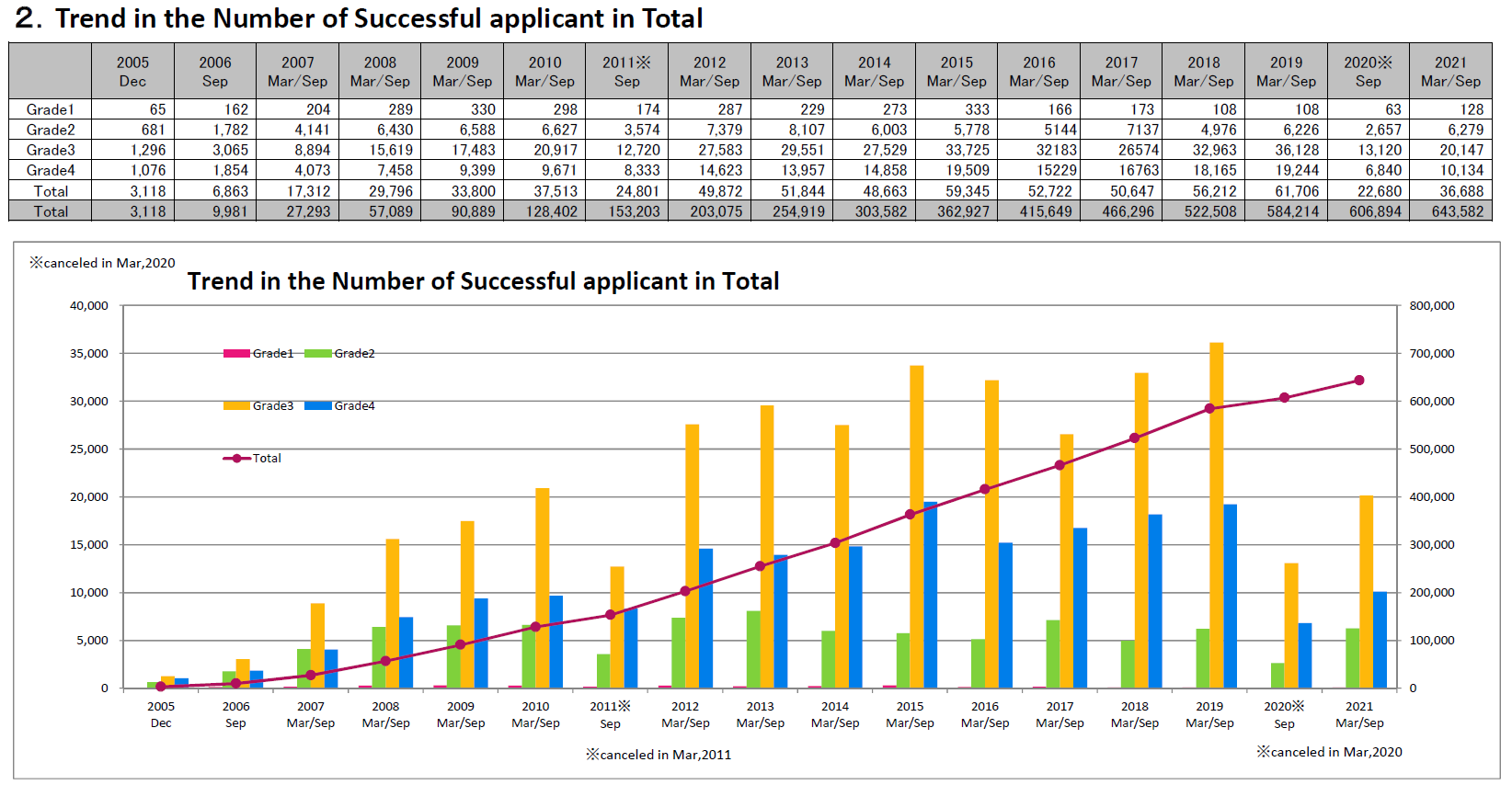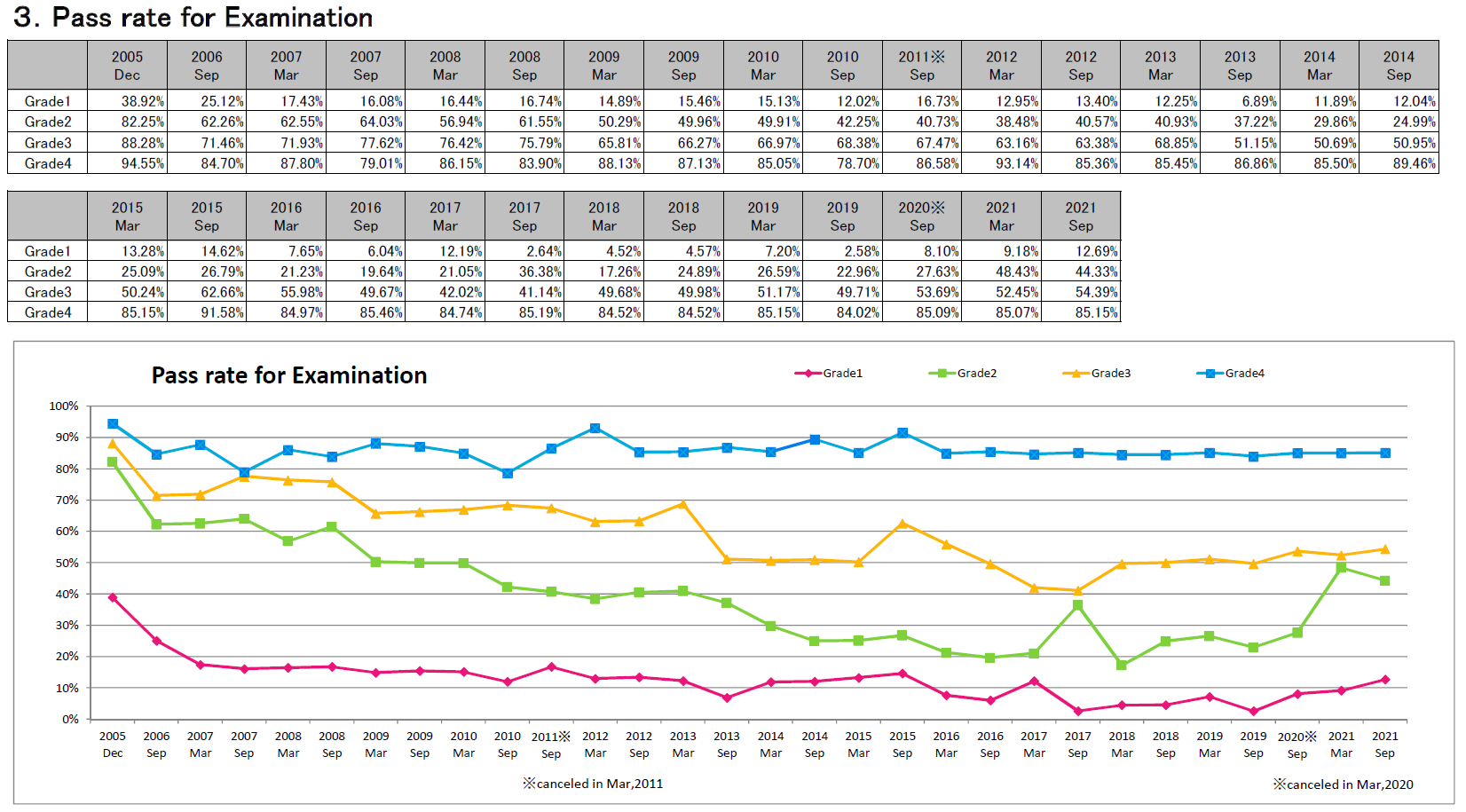JSA administers “QC KENTEI (Quality Management and Quality Control Examination)”. The first examination was conducted in 2005.
“Kaizen”, “Quality Management” and “Quality Control” are the key-words for realizing better quality products and services, and capacity in these activities is based on knowledge and experience.
QC KENTEI is a measure for assessing knowledge (at four grades) of QM, QC and Kaizen, and is intended for people working or preparing to work in any organization.
Note: QC KENTEI is provided in Japanese only.
Ms. Liu Li Juan(Taiwan) TAIWAN BROTHER INDUSTRIES, LTD.
Half a year after joining the current company, study of quality control has begun. Even now, I can’t believe that I have passed grade 3 and grade 4 of QC KENTEI with half a year of studying. I didn’t even know about quality concept and a statistical method, but my colleague recommended me to take QC KENTEI. Since I am a foreigner and a new face at this company, I was very worried whether I can understand industrial terminologies, special Japanese words, and the way of calculation of a statistical method.
But I didn’t want to give up, so I studied strenuously! I solved all stumpers and past issues on the textbook of QC KENTEI, and at the same time I have memorized arithmetic expressions and difficult words. And I repeated and practiced them. If I had just studied using the textbook, I believe it was more difficult to understand. Practice and experience through daily business at the factory helped me understand those concepts deeply. I think this was the most important experience that I had through taking the examination.
I think utilizing the numbers by a statistical method was a very amazing thing! After studying, I was impressed that I can utilize QC seven tools in daily business and I can analyze the tendency of the defeats. I know my understanding is still not enough, and also I have a lot of underutilized things, but I’d like to exert myself in order to utilize them sufficiently at a workplace. And I will keep trying my best!
Ms. Chiu Yi Ting(Taiwan) TAIWAN BROTHER INDUSTRIES, LTD.
This April, senior members of the company suggested me: How about challenging the grade 3 and grade 4 of QC KENTEI !
At that time, I was not able to clearly understand the long articles about quality control on the textbook of grade 4, and the equations required in grade 3.
Especially, my Japanese language ability was just level 3 (JLPT N3), so there were a lot of specialized vocabularies and phraseologies that I had to learn. I thought: Is there no problem? I felt so confused because I lacked confidence in myself.
But until September, I solved past QC KENTEI questions again and again with a junior, and not only studied the book of quality control but also wrote down the difficult points in the notebook. I also made use of knowledge of quality control and QC seven tools to analyze the situation of product failure. In addition, my boss and senior members in Japan kindly taught us in-house class studying QM/QC every week, so I felt more confidence in myself than before.
For the grade 3 and grade 4 of QC KENTEI on 6th September, I went to Japan. On the previous day of examination, I reviewed with a junior in a library in Japan. Thanks to everyone’s support, we passed the grade 3 & 4. I really felt so happy and excited.
Besides that, I also could pass the JLPT N2. I think it is because I did a lot of Japanese questions for QC KENTEI.
By challenging the examination, I was able to realize my own development every day, and make use of knowledge of quality control in the job. I really tried my best to study quality control and Japanese. It was a valuable experience.
For the factory, the most important thing is providing the highest quality products to our customers. I would like to teach juniors about all of my quality knowledge and use quality control methods that I learned and solve the actual quality problems in the factory. I will keep learning about quality knowledge that I don’t know yet. On the other hand, I can give assistance to not only our factory but also the other overseas factories by teaching quality control methods. If everyone has a high sense of quality improvement and learns the quality knowledge, the bad quality issues in factories will get lesser and lesser.
(Remark) JLPT: Japanese Language Proficiency Test



